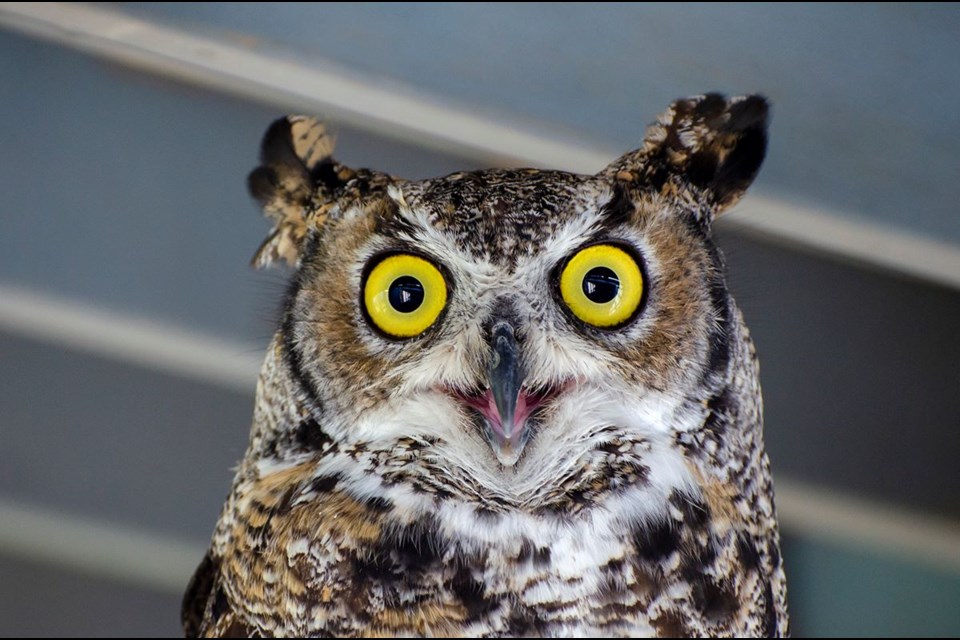Life in a rural community means interacting with wildlife on a daily basis. For many in Rocky View County (RVC), interacting with animals typically involves work on a farm, but hundreds of species– from bears to birds– call the County home.
Wildlife will get sick and injured, it’s a part of nature, but when animals suffer injuries too great to overcome on their own, a local organization has made it their mission to help.
In 1993, the Alberta Institute for Wildlife Conservation (AIWC) opened its doors. In thirty years, the Madden-area rehabilitation centre has seen about 36,000 injured or orphaned animals enter its care and has nursed back to health wounded, sick, and orphaned birds, bears, deer, skunks and many others.
The AIWC is an accredited veterinarian hospital funded entirely by donations. For 30 years the organization, originally incorporated as Rockyview Wildlife Recovery, has employed full-time staff and hundreds of volunteers who work to rehabilitate animals. In the last couple of years alone they’ve done a lot of notable work.
Last week the AIWC released seven mule and white-tail deer fawns back into the wild after five months of care. According to the AIWC, the fawns needed immediate help and were most likely accidentally kidnapped from their mother.
AIWC communications coordinator Scottie Potter said when the fawns were brought to the centre, they were too young to survive on their own.
“It is totally normal for mother deer to leave fawns alone for large parts of the day,” Potter said, adding that some people mistakenly pick them up thinking they are abandoned when they’re actually fine.
The AIWC described the fawns as among the most demanding patients that come into their care, with the cost of rehabilitation being over $1,300 per fawn.
But deer aren’t the only thing coming through the doors of the AIWC. Since August, the centre admitted more than 50 hawks, many of which came in with impact trauma after being struck by vehicles. After rehabilitating and nursing the hawks back to health, almost all were released last month.
The AIWC is accustomed to caring for birds. Indeed, it’s even equipped to care for more than just the hawks that came through the centre at the end of the summer.
Earlier this year, in March, the centre opened a new 2,650-square-foot bird enclosure that will better allow veterinarians to accurately asses birds as they recover.
According to the AIWC, of the 36,000 or so animals that have come through their doors, a significant number of them have been birds. Up to 1,000 birds are treated annually at the clinic, with the busiest time being May or June when different bird species hatch their young.
The organization states that the majority of bird injuries result from interactions with humans, typically via vehicular collisions.
“When it comes to specific things, one of the most important things would be driving safely, that’s one of the biggest threats,” Potter said.
In August, the AIWC opened a highly publicized new enclosure designed for rehabilitating rescued bears. Two bear cubs, one of which was found on the side of the road and displayed signs of head trauma, and another appeared abandoned or without a parent for more than 24 hours, made the den their home late this summer.
“Having this bear space really made our summer much smoother and easier for caring for tons of different mammals," Potter said. "It wasn't just bears, not just foxes. We've got weasels, we've got tons of skunks. And so it's been a very mammal summer, and this bear enclosure really helped."
According to the AIWC’s website, 1,699 animal patients have been through the clinic this year, with 485 having been released, 6,464 hotline calls having been fielded, and the organization's dedicated volunteers having logged 4,912 hours.
For more information on the AIWC visit www.aiwc.ca.




